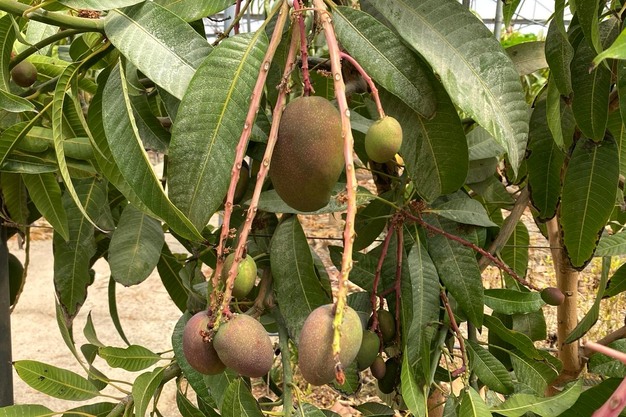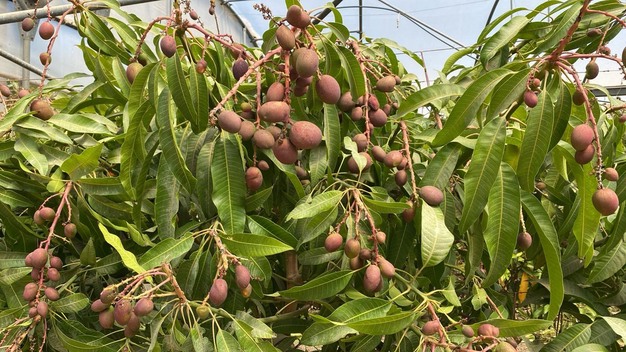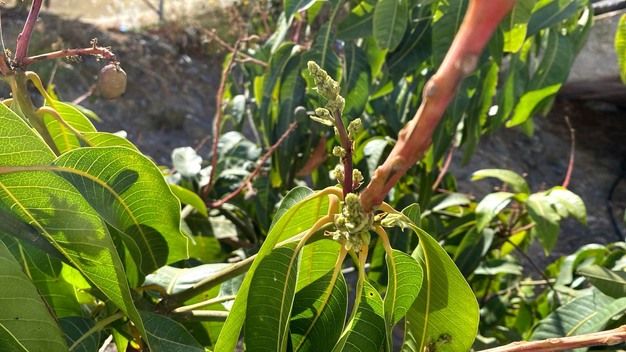In just over a month, by mid-July, the first greenhouse mango productions in Europe, grown in the Spanish region of Andalusia, will hit the market. "At Finca El Edén, we cultivate organic Irwin mangoes in our greenhouses in Motril," says Eva Cantos. "The Irwin mango is highly appreciated for its flavor, and those grown in greenhouses are even more sought after, since they are the first to arrive, but this year we won't have the harvest we had expected."

"Fortunately, we have not had any major issues with the water supply. In Motril and Salobreña, a lot of very high quality water comes down from Sierra Nevada. The biggest impact has been weather-related," she says. "In the fall, temperatures were very high, to the point that we saw flower buds on the trees in December, which is something that should happen in February. Those high daytime temperatures, in stark contrast with the night's cold, resulted in the setting of the flowers at the end of winter not being the best."
"This has resulted in a lot of fruit ending up as baby mangoes, or bonbon mangos, which are a delicacy, a very sweet and flavorful mango that can be eaten unpeeled; however, these are not as profitable as the mangoes harvested with a normal caliber, even though Irwin mangoes tend to be smaller."

"Outside the greenhouse, we are seeing this same situation with our Osteen mangos, and even now, in the middle of June, we are seeing trees with new flower buds, when it is not the season. All of this is making us realize that, whether we like it or not, climate change is a reality that is increasingly affecting nature and agricultural productions."

"However, there are two other tropical crops which haven't been as affected by the rising temperatures, namely pitaya and passion fruit. In fact, passion fruit is a very strong plant that thrives with heat and many hours of sunlight and does not even need large amounts of fertilizer."
"Its season will start around July 15-20 and it will salvage the campaign," says Eva. "Luckily, agriculture is not our only activity, and we can face campaigns with little profit, but many of the producers who make a living solely from their avocados or mangoes are suffering quite a bit after several difficult campaigns with costs constantly on the rise."
"Moreover, the forecast is that the price of avocados will start to drop as the production increases in Latin America, Morocco and other African countries, and that prices at origin exceeding 3 euros per kilo will become rarer."
"For a small grower, a price of about 2 €/kg is no longer profitable, considering the costs and all the requirements and regulations that need to be met. I fear that, in the future, farms like mine, run by small producers or family projects, will disappear, and only companies able to handle large volumes of fruit will be able to stay in this business."
"In fact, we are already seeing macro-companies and investment funds buying large farms, and if this continues, they will gradually take it all over."
 For more information:
For more information:
Finca El Edén
Polígono 35 - Parcela 378 – LAHOZ
18600 Motril, Granada, Spain
info@fincaeleden.es
www.fincaeleden.es
